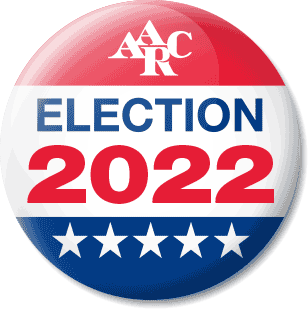Neonatal-Pediatric Section Chair
Emilee Lamorena
Clinical Manager, Respiratory Care
Ann & Robert H Lurie Children’s Hospital of Chicago
Member Since: 2012
AARC Activities:
- Member of Education Section 2017, 2018, 2019, 2020, 2021
- Member of Neonatal-Pediatrics Section 2017, 2018, 2019, 2020, 2021
- Member of Management Section 2017, 2018, 2019, 2020, 2021
- Practitioner Of The Year: Neonatal-Pediatrics Section 2020
- Preceptor Recognition Award: 2017, 2018, 2019
- AARC Congress Speaker’s Academy: "High Frequency Percussive Ventilation – Smoke Inhalation-Associated Lung Injury" 2018
- AARC Congress Speaker "Clinical Preceptorship: How and Why?" 2019
- AARC Congress Speaker "High Frequency Percussive Ventilation: Does It Have A Role In Neonatal/Pediatric Respiratory Care?" 2019
- AARC Congress Speaker "Calm Seas Don’t Make Good Sailors: How To Build Trust As A New Leaders" 2020
- AARC Webcast Speaker "Effective Preceptors: A Panel Discussion" 2018
Affiliate Activities:
- Member of Illinois Society for Respiratory Care 2012-current
- Speaker at Illinois Society For Respiratory Care Conference: "Clinical Preceptorship: How And Why?" 2020
- Speaker at Illinois Society For Respiratory Care Conference: "Calm Seas Don’t Make Good Sailors: How To Build Trust As A New Leader" 2020
- Speaker at Michigan Society For Respiratory Care Conference: "NAVA: What’s The Big Deal?" 2021
- Speaker For Lurie Children’s Neonatal/Pediatric Respiratory Care Conference: "Clinical Preceptorship in Neonatal/Pediatric Respiratory Care: How and Why?" 2018
- Speaker For Lurie Children’s Neonatal/Pediatric Respiratory Care Conference: "Hot Topics in Neonatal/Pediatric Respiratory Care" 2019
Education:
- University Of California, Los Angeles: Bachelor Of Science in Biology, 2008
- Rush University Medical Center: Master Of Science in Respiratory Care, 2013
- RRT 2013, RRT-NPS 2016
Publications:
- "NAVA: What’s The Big Deal?" AARC Times, author, 2020
- “Ann & Robert H. Lurie Children’s Hospital Of Chicago Respiratory Care New Graduate Residency Program” AARC Times, author, 2019
Elections Committee Questions:
What do you see as the biggest challenge facing the AARC and what do you recommend to address it?
Many Respiratory Therapists still do not have awareness of, or truly understand how much work the AARC does to advocate for, educate, and elevate our profession. This is unfortunate, because the AARC provides such an abundant amount of resources, education, access to leaders and experts, and advocacy for RTs. I believe we can make steps toward reaching more Respiratory Therapists and gaining their trust by ensuring that the leadership of the AARC more equitably represents the RTs in the field and finding opportunities to promote and elevate bedside Respiratory Therapists. I believe by engaging with local and regional leaders, they can better understand the unique challenges and barriers they face to help provide more specific solutions. I also believe an increase in transparency and communication will help Respiratory Therapists understand the benefits and work of the AARC.
Healthcare is changing more rapidly than ever. What do you feel is the main issue Respiratory Care Practitioners are facing, and what are the key solutions that you feel should be addressed to support our profession?
I believe the main issue Respiratory Care Practitioners are facing, especially now in the aftermath of the pandemic, is feeling that they have adequate resources (staff, education, equipment) to perform their jobs well. There is also a high level of stress and burnout in the field. I believe there are a few key solutions that can address these problems. We must continue to increase awareness of our profession, and recruit for and maintain high-quality Respiratory Therapy programs. This can include the creation pipeline programs to guide students from high school into college. I believe the AARC should work with local and regional leaders to understand their barriers to recruiting and retaining staff – and help create specific strategies to help these leaders navigate issues in their institutions. It is also important to increase accessibility to education to continue teaching and empowering RTs so that they continue to learn and grow, giving them pride and confidence in the work.
Role-Specific Questions:
Value of section membership is important. If given the opportunity to represent, what would be some steps you would take to continue to increase the value of section membership and gain further engagement of section members?
I believe a unique challenge that bedside neonatal-pediatrics RTs face (or perceive is an obstacle) is having access to good resources or benchmarking when they have clinical questions. The care we provide is so unique, and we don’t have as large a network (or as large amount of significant research/data) as our adult RT colleagues do. I would love to help foster more relationships between similar institutions, and create forums/spaces for neo-peds RTs to communicate with each other to share experiences, ask questions, compare equipment, benchmark processes, etc. My ultimate goal is to increase transparency and access to the most up-to-date, evidence-based resources, so that we can standardize our care. I also think increasing availability of different institutions’ policies, guidelines, and procedures will help streamline and standardize care. I’m a big proponent of not “re-inventing” the wheel, and if it’s best practice – we should share it (and do it). This will also help leaders of departments who often spend a lot of time asking colleagues (from other institutions) questions and benchmarking with other hospitals. Bedside RTs seek tangible help and guidance to the care they are providing every day. I believe this will help cultivate value to membership and increase engagement of our section members.







